Long-lasting Geroprotection from Brief Rapamycin Treatment in Early Adulthood by Persistently Increased Intestinal Autophagy
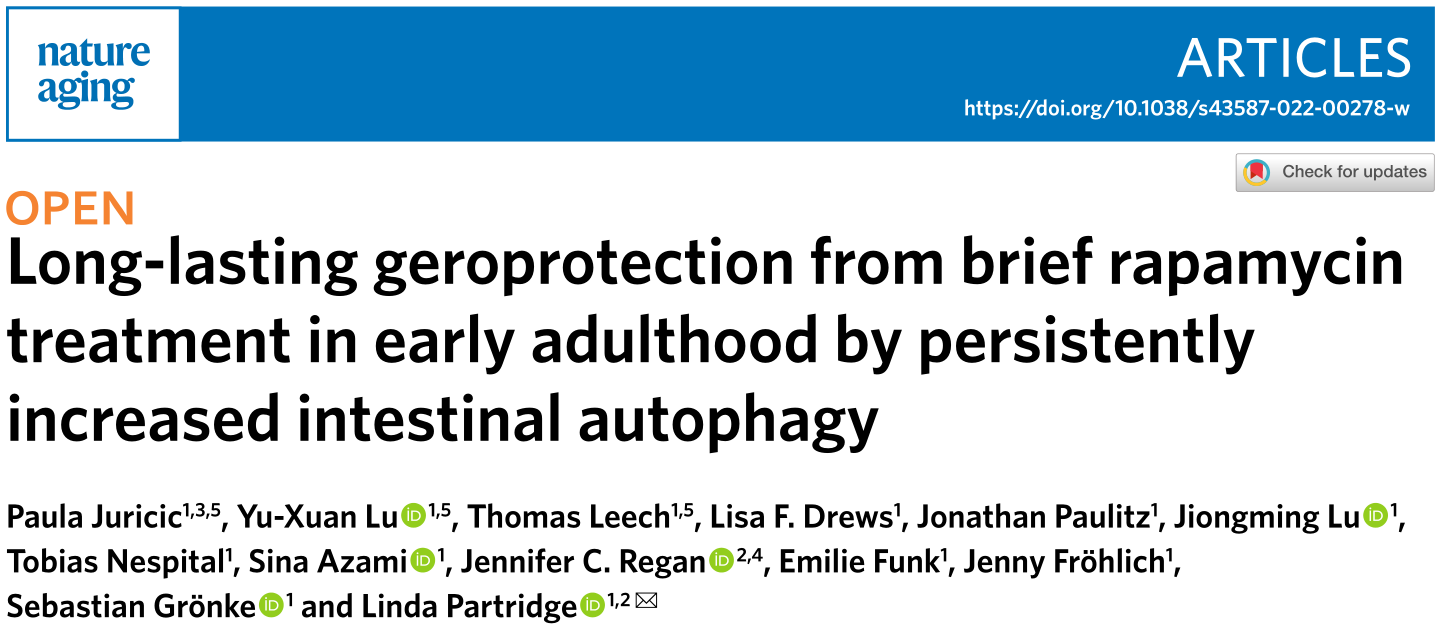
Research Abstract:
The licensed drug rapamycin has the potential to be repurposed for geriatric protection. A key challenge is avoiding the undesirable side effects of continuous dosing. The findings suggest that the geriatric protective effects of chronic rapamycin treatment can be obtained with brief drug pulses during early adulthood in female flies and mice. In Drosophila, brief early rapamycin treatment in adults extended lifespan and reduced age-related gut decline to the same extent as lifelong administration. Long-lasting memory of early treatment was mediated by enhanced autophagy in enterocytes, accompanied by elevated intestinal LManV and lysozyme levels. The transient elevation of autophagy in early adulthood itself induces a long-term increase in autophagy. In mice, 3 months of early treatment induced memory effects even after 6 months of rapamycin discontinuation, maintaining lysozyme distribution, Man2B1 levels in intestinal crypts, Paneth cells similar to chronic treatment Structure and intestinal barrier function.
Rapamycin has been used in clinical medicine to combat organ transplant rejection and treat cancer for decades after its discovery. In the past decade, researchers have found that the use of rapamycin can achieve the magical effect of prolonging lifespan in different experimental animals from worms to rodents, so this molecule is recognized by aging biologists as the most promising. One of the anti-aging drug candidates. In order to achieve the maximum effect of anti-aging, research experts generally recommend taking this drug for life. However, long-term use of this drug will inevitably have some side effects.
The macrolide rapamycin inhibits TORC1 activity and prolongs lifespan in model organisms. In mice, rapamycin delayed a variety of age-related diseases, such as cognitive decline, spontaneous tumors, cardiovascular and immune dysfunction. However, even low doses of long-term rapamycin may cause adverse effects. Shortening the duration of treatment may reduce adverse effects. Short-term treatment in later life prolongs lifespan in mice and boosts immune responses in older adults. However, it is unclear whether the effects of treatment in later life are comparable to those of lifelong drug exposure, or whether short-term treatment in young adults is sufficient to achieve the benefits of chronic treatment.
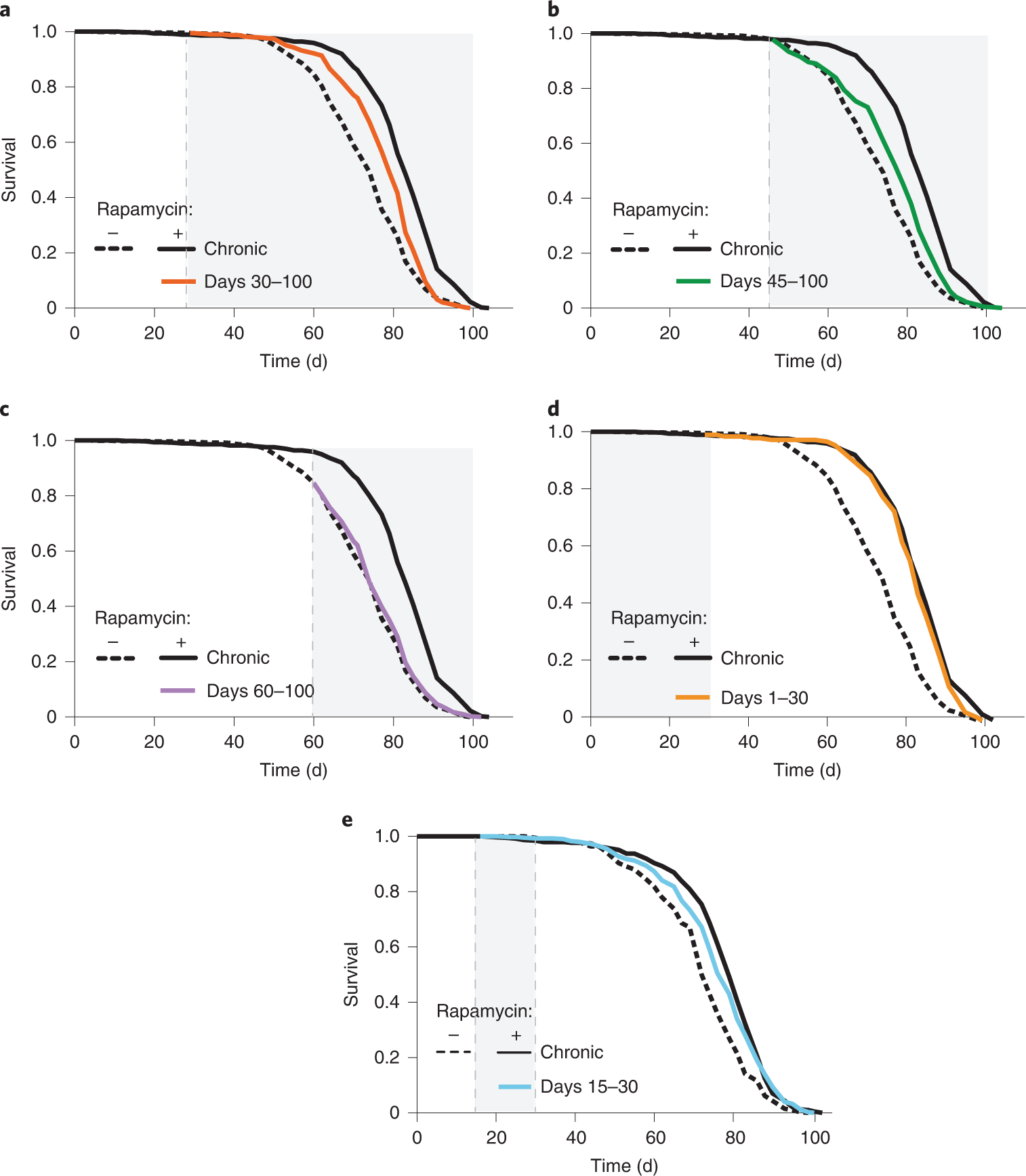
Figure 1: Lifespan response to rapamycin treatment decreases with age at treatment initiation. a, Rapamycin treatment extends lifespan from day 30 to a lesser extent than lifelong treatment. b, c, Rapamycin treatment modestly prolongs lifespan from day 45, whereas treatment from day 60 (c) has no lifespan prolongation effect. d, Rapamycin treatment from days 1-30 prolongs life as much as chronic treatment. e, Treatment on days 15-30 prolongs life slightly less than chronic treatment. N = 400 flies per condition.
In the present study, long-term effects of short-term rapamycin administration were revealed, including prolonged activation of autophagy, reduction of age-related intestinal disease, and increased lifespan in Drosophila. Brief rapamycin administration in early adulthood induced these benefits to the same extent as lifelong treatment, with enterocytes in the gut playing a key role. The long-term elevation of autophagy is mediated by sustained increases in LManV and BCAT expression. Importantly, some benefit of early, brief rapamycin treatment was also observed in the small intestine of mice, suggesting that 'rapamycin memory' is at least partially preserved in mammalian models. Given the critical role of autophagy in a range of age-related diseases, including cancer, immune system dysfunction, and neurodegenerative diseases. The findings suggest that the geriatric protective effects of rapamycin can be achieved with early, short-term treatment without the side effects that sometimes occur with chronic, long-term administration. While the results reveal new avenues for geriatric protection through pharmacological intervention, it is important to identify interim clinical dosing regimens that maximize protection while minimizing side effects.
The study greatly expands our understanding of the role of rapamycin as a "life-extending drug" at different ages. Compared with dietary restriction, it has a more sustained effect of healthy longevity in old age and early adulthood. At the same time, the theoretical guiding significance of this research is far greater than its specific practical significance. Because the use of healthy aging interventions (such as rapamycin) in early adulthood is not encouraged in the field of aging research. However, this research tells us very clearly that the sooner you can fight aging, the better, and you may get unexpected long-term health benefits.






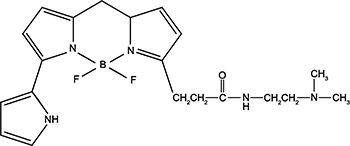
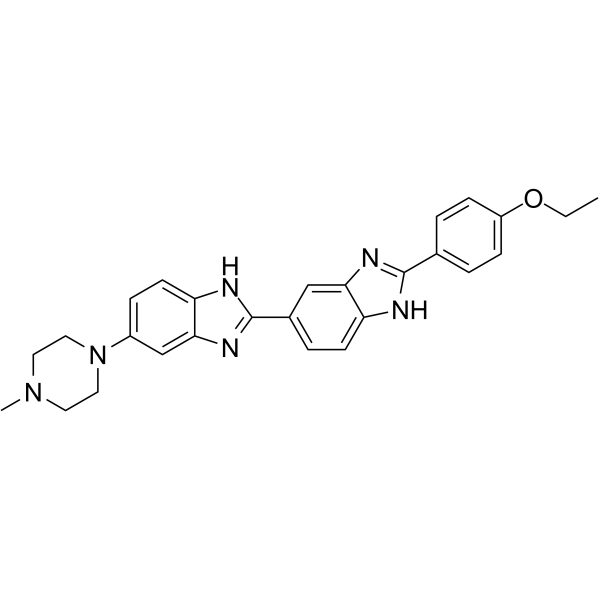



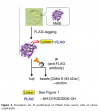




Kommentare